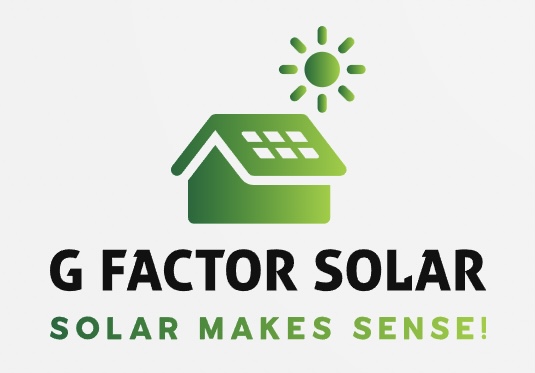- (702) 941-0911
- info@gfactorsolar.com
- Contact us at any time!

My name is Garrett but friends call me G, and my online/marketing name is G Factor. “G Factor” means “general intelligence”. We want to become a knowledge base and educational source for everything solar. In this chapter of my life, I am pursuing the solar technology industry as I want to be passionate about the work I do. To be frank, this is the perfect fit. Yes, I will make a great living along the way, but more importantly, I’ll get to grow my network of amazing contacts and help people make educated decisions on why solar makes sense for their property. It all boils down to the right system, installer, and warranties. Additionally, I look forward to building a team of sales reps as well as network of installers and equipment providers who share the same values.
One of the biggest challenges for someone like myself, who is getting into this industry, is navigating through the web of information by these dealers and subcontractors. First, let’s explain the difference between dealers vs subcontractors for those who may not be aware. Subcontractors are representatives who generate deals on behalf of the dealer. The dealer is the company who is actually installing the equipment, and providing warranties for installation errors and production guarantees (1. water leaks or other damages that occurred during the installation process; 2. labor for equipment that underperforms). These warranties are separate from the equipment manufacturer’s who ensure the physical equipment performs as expected over the ‘lifetime’ of the system (typically 25-30 years under warranty – but the equipment should realistically last years past that timeframe).
Some dealers and subcontractors are not always accountable. They often sell systems that are not the best fit for the property owner, they misinform the client about how tax credits work, and/or they include fraudulent ‘adders’ such as a line item that gives the client cash back in the deal. Clients can easily find themselves in legal trouble with the IRS and the lender based off this misinformation as well as a hot mess when filing claims with warranty coverages.
Consider a real world example I know of regarding a dealer who did not stand behind their work: a family member had solar installed, which they later realized led to water damage from a leaky roof. The installer tried to say it was a homeowner’s insurance claim, while the insurance company said it was the installer’s responsibility. Ultimately it took two months of headache before homeowner’s insurance accepted the claim, which also cost a deductible, followed by two weeks to get the repairs completed. This is just one of many examples of how these ‘fly by night’ companies are a nightmare to deal with later on, and underlines the importance of doing the deal with the right installer. I would imagine this realization easily discourages a lot of folks from pursuing solar, and back to square one where they are still paying whatever rates their power company sets.
“From 2021 to 2022, electricity prices increased 14.3 percent, over twice the rate at which they increased from 2020 to 2021” according to Consumer Price Increase data released by the U.S. Bureau of Labor Statistics. This is more than twice the overall 6.5% increase other commodities saw from inflation. Here’s the link to that article: https://www.bls.gov/opub/ted/2023/consumer-price-index-2022-in-review.htm
The bottom line, energy cost for property owners continue to increase year over year, and at staggering rates you have no control over (unless you go solar). An article posted in April of 2023 by Nevada Current stated: “NV Energy residential customers in Southern Nevada are paying $844 more a year for electricity than in 2021 when the Legislature last met, according to an exhibit submitted to the Legislature by Figueroa. That represents a 54.2% increase to ratepayers, many of whom are on fixed incomes.” The article can be found here: https://www.nevadacurrent.com/2023/04/24/nv-energy-bills-projected-to-skyrocket-in-july/#:~:text=NV%20Energy%20residential%20customers%20in,whom%20are%20on%20fixed%20incomes.%E2%80%9D
Some utility companies are already planning on further rate hikes for 2024, so ‘going solar’ continues to make financial sense for property owners. Most employers are not adjusting wages to compensate for increased costs of living, and I feel especially disheartened for our seniors who are on fixed incomes and suffer the most. We need change, and solar is the best answer at our fingertips.
As you see, there is a lot for a property owner to take into consideration and my team wants to help. Our ‘strategy’ is simple: to be honest, transparent, accurate, and accountable. Our ‘tactic’ is to be patient, understanding, and avoid any high pressure sales tactics. Ideally we’d love a “one call close” but can appreciate those who still need to “think about it”. Going solar is a big decision to make, but it does not need to be a daunting task to make sense of. With that said, we would appreciate the opportunity to explore your situation and find the option that best fits your needs. Consultations are free and there is no obligation to move forward. Even if we do not ‘close a deal’ it would be nice to make a friend, who might introduce us to others interested in learning about the benefits of going solar.
Thank you for reading! If you’re a property owner and would like to learn more, or if you’re interested in potentially working together, fill out the contact form/send an email/give us a call or text! Thank you.